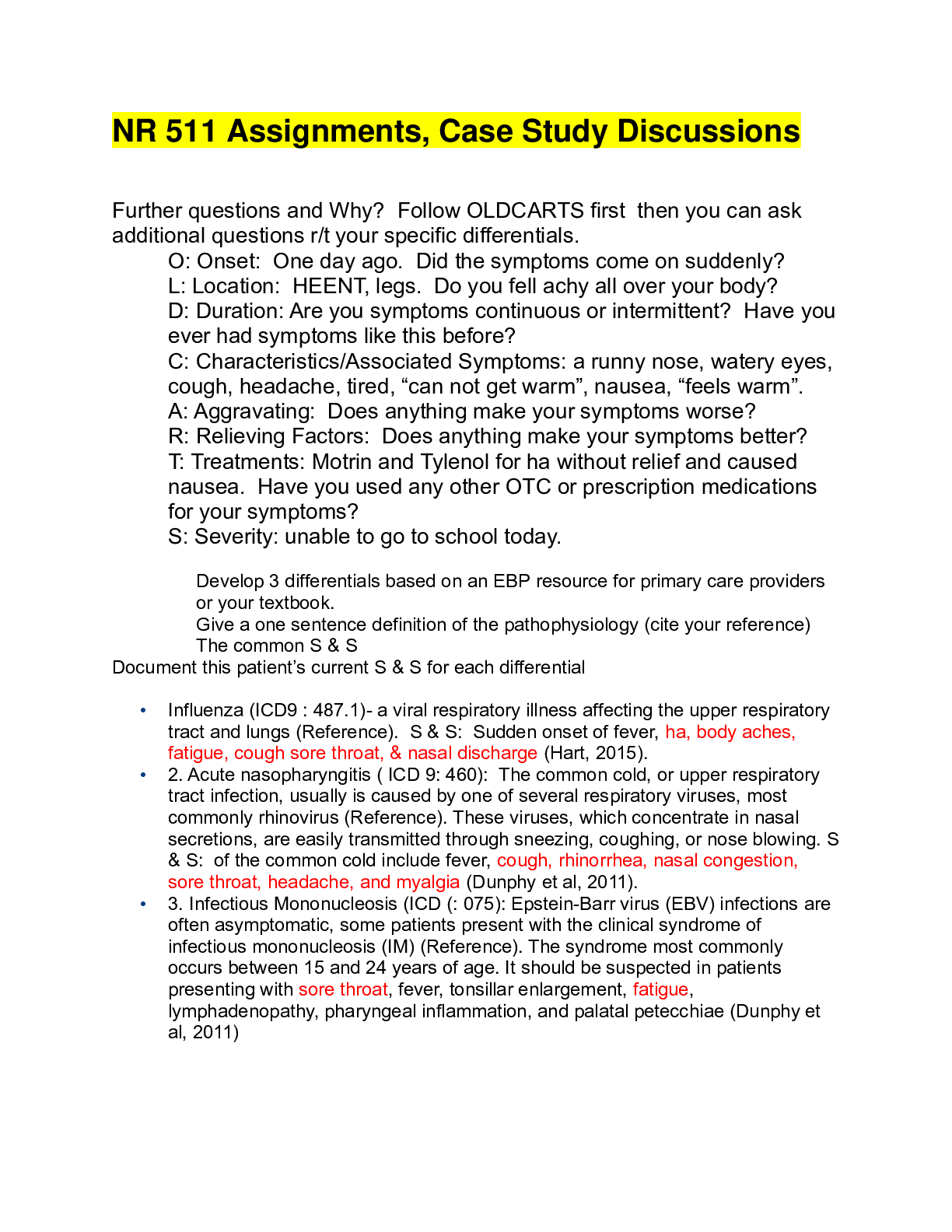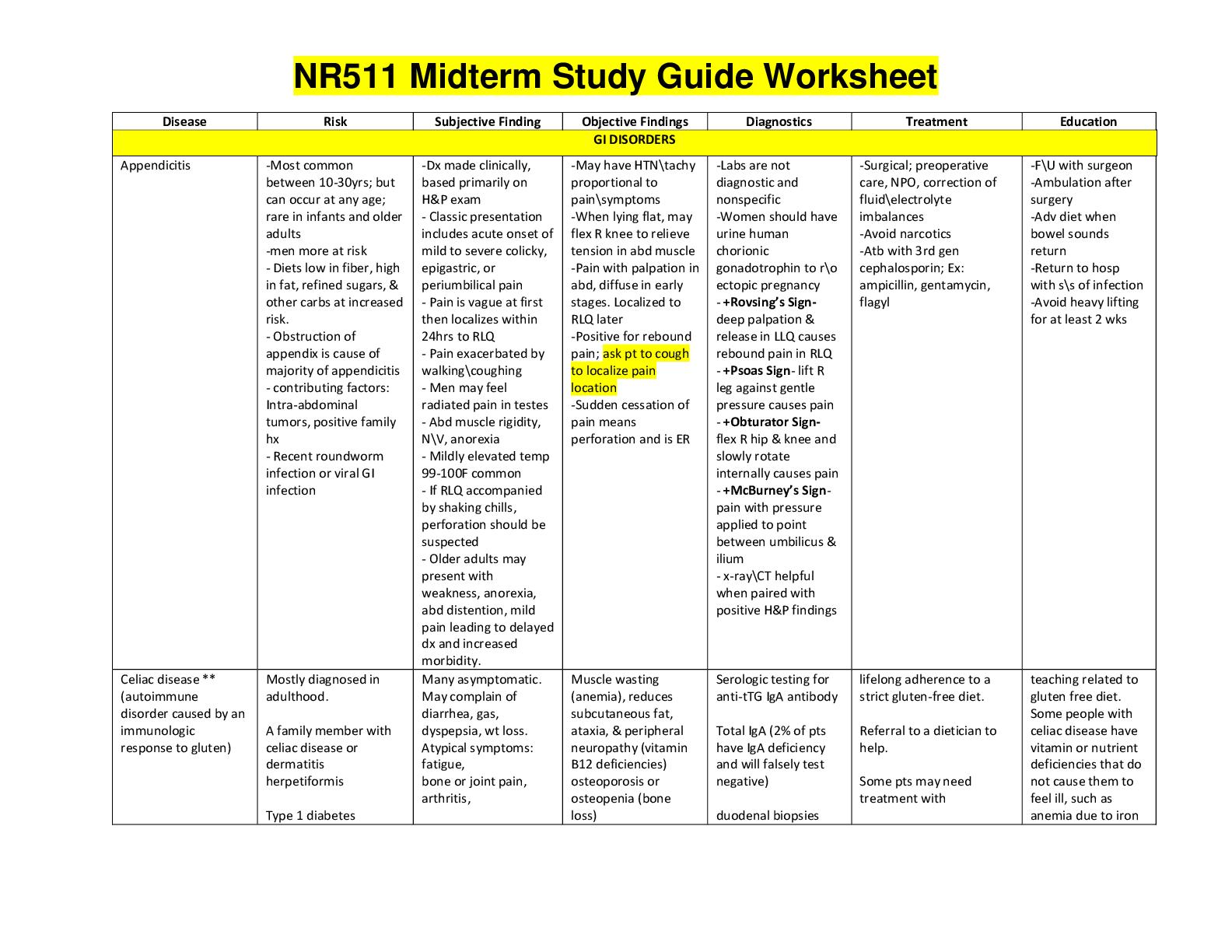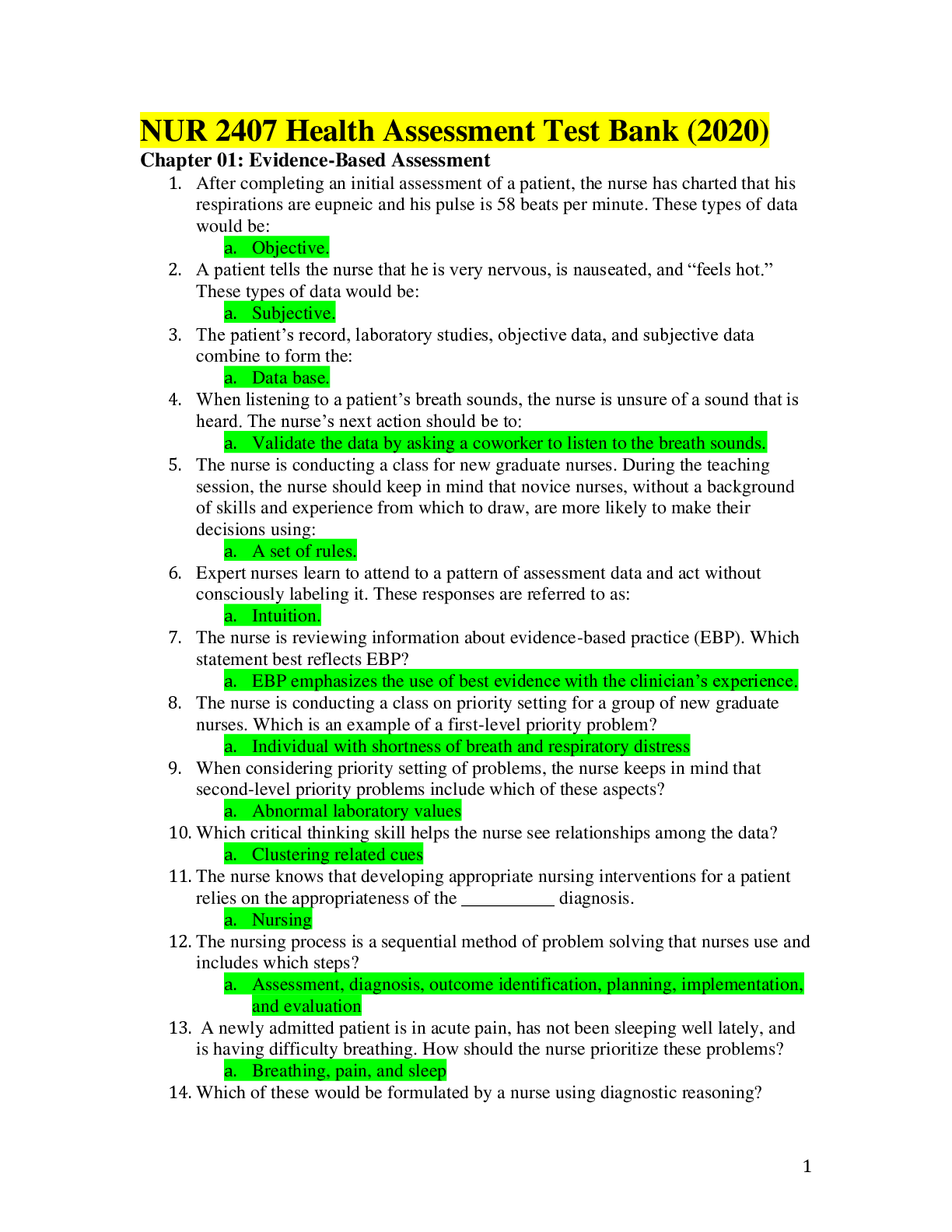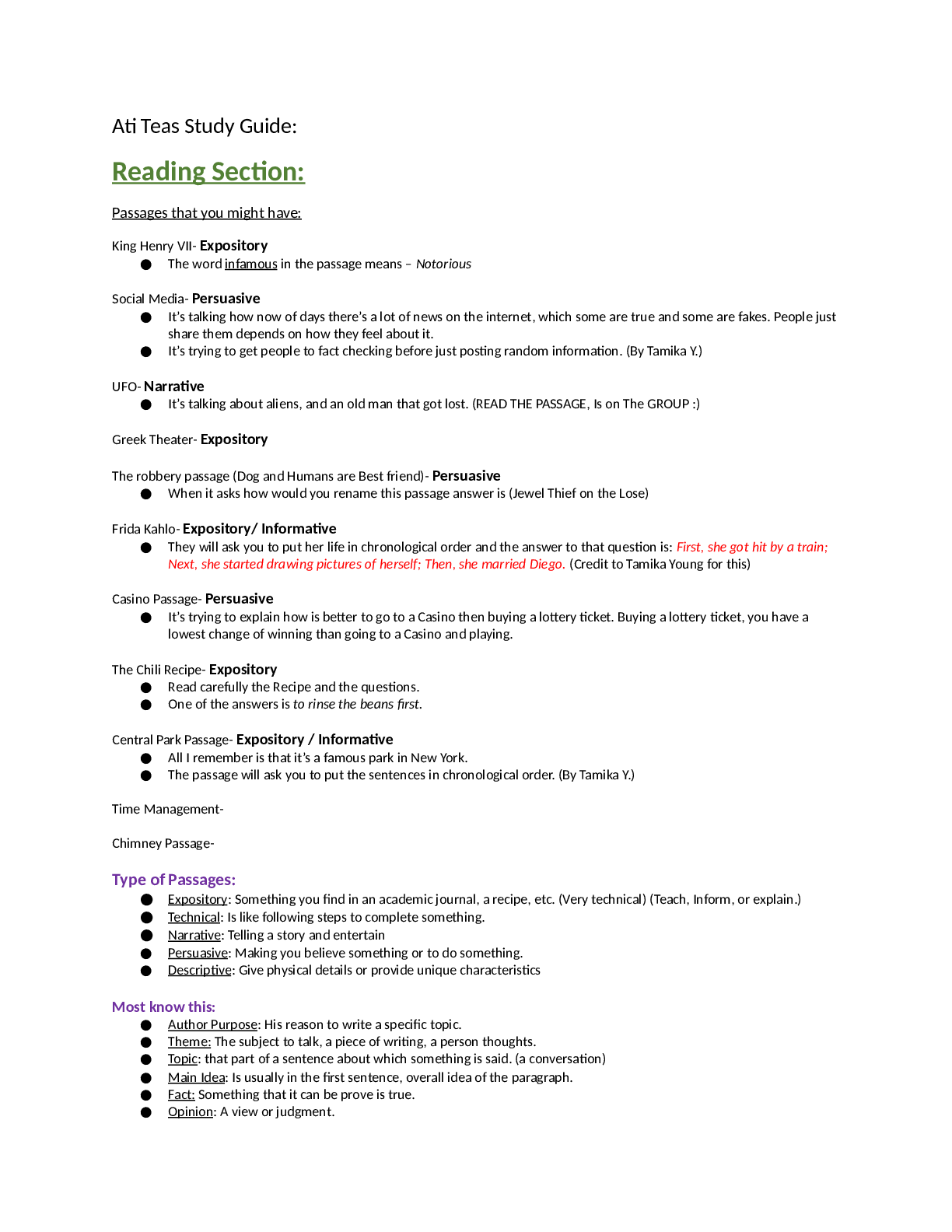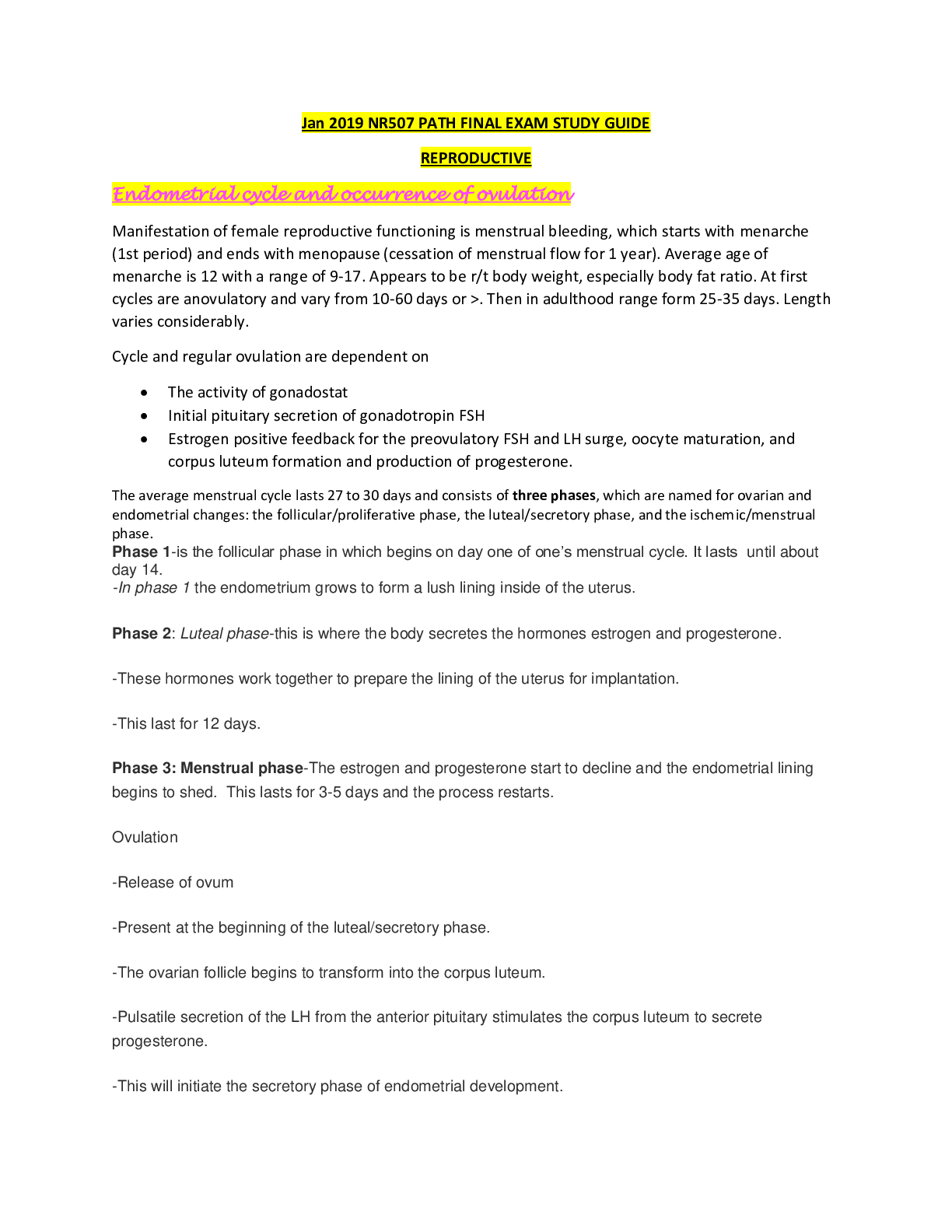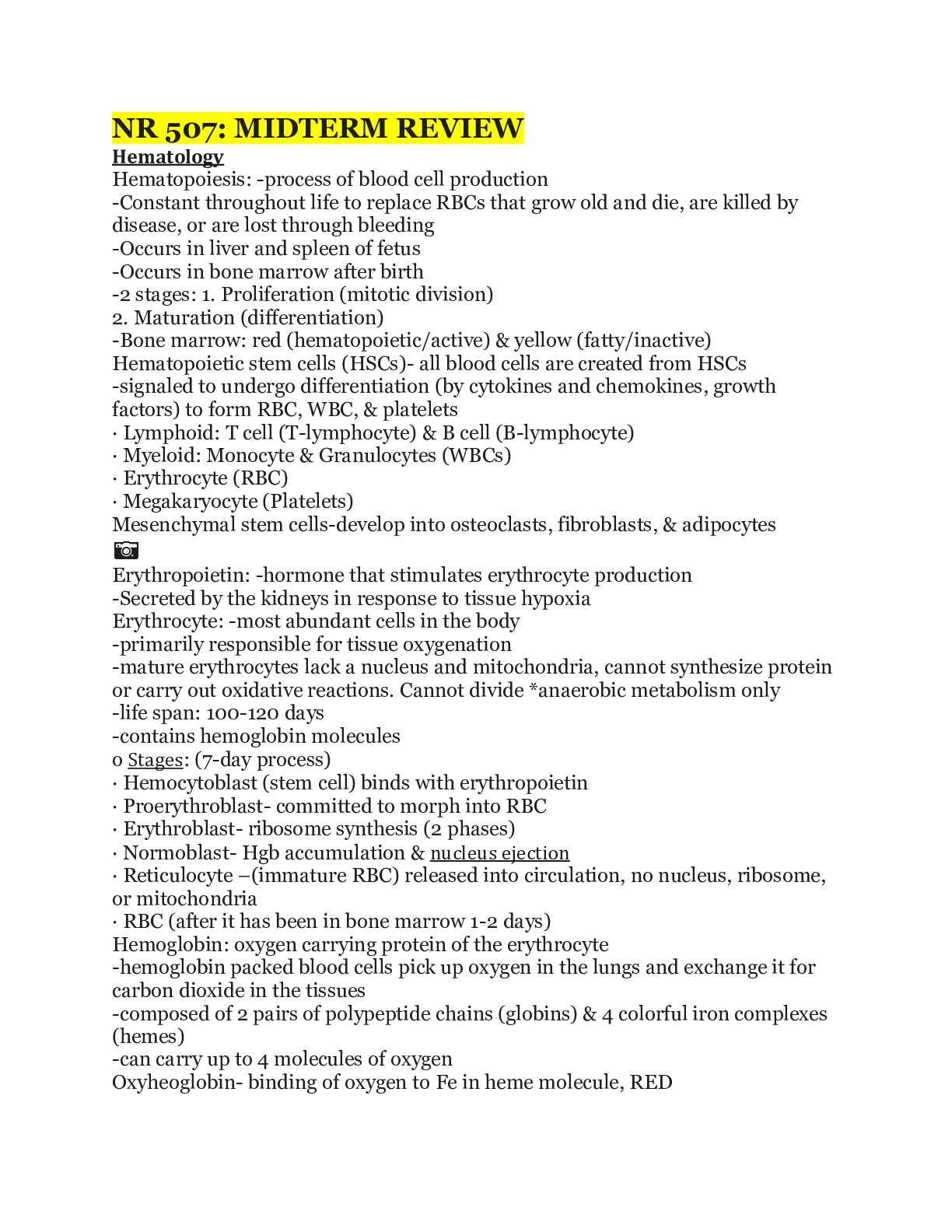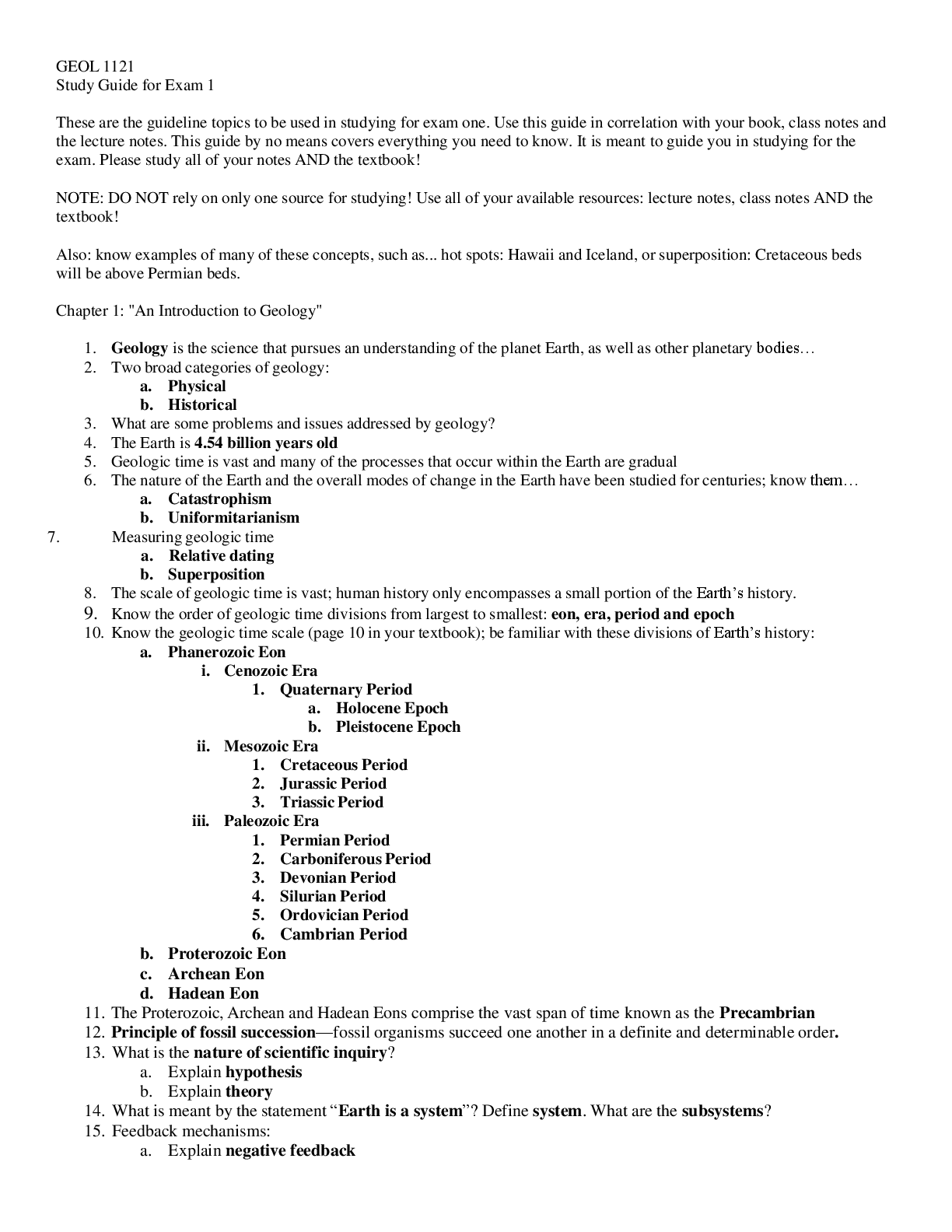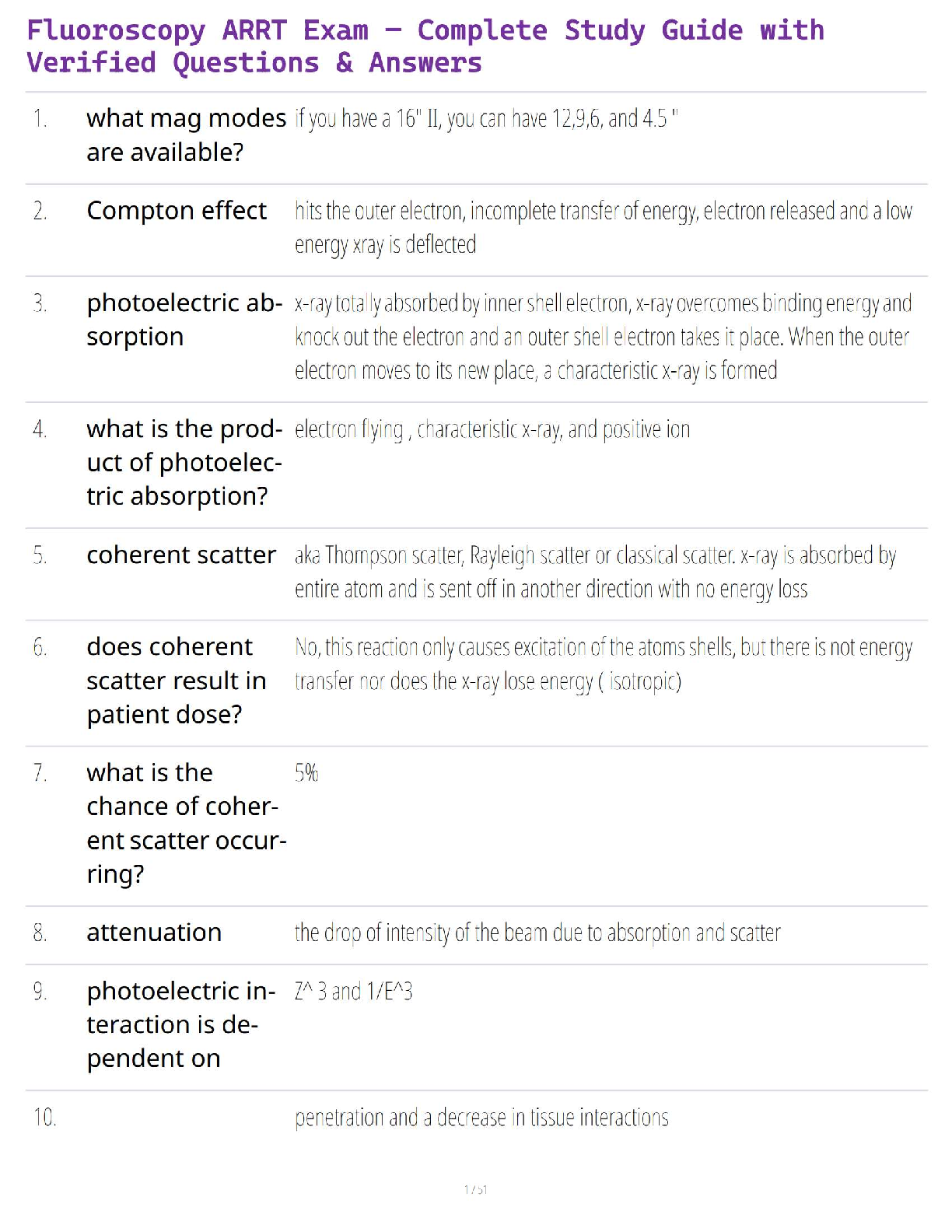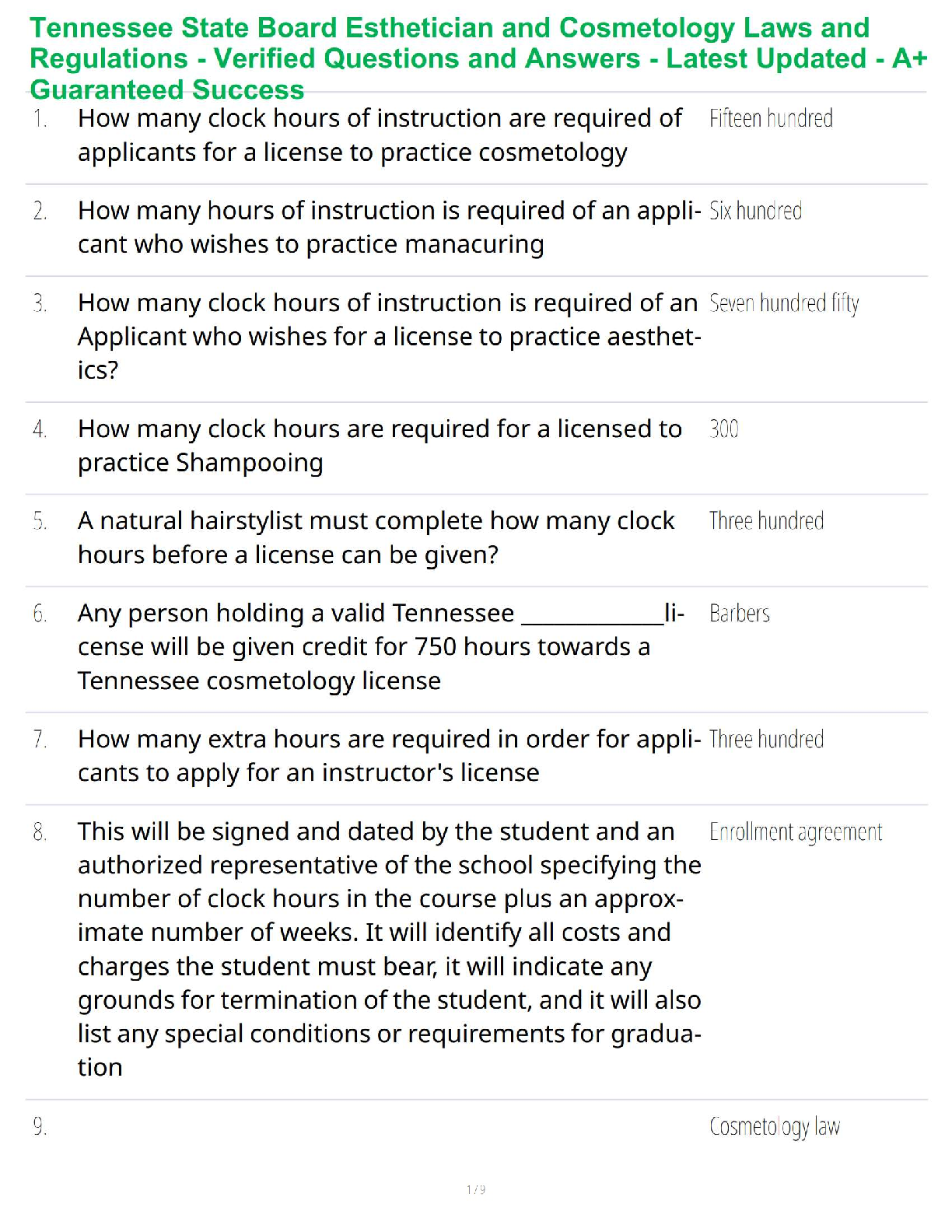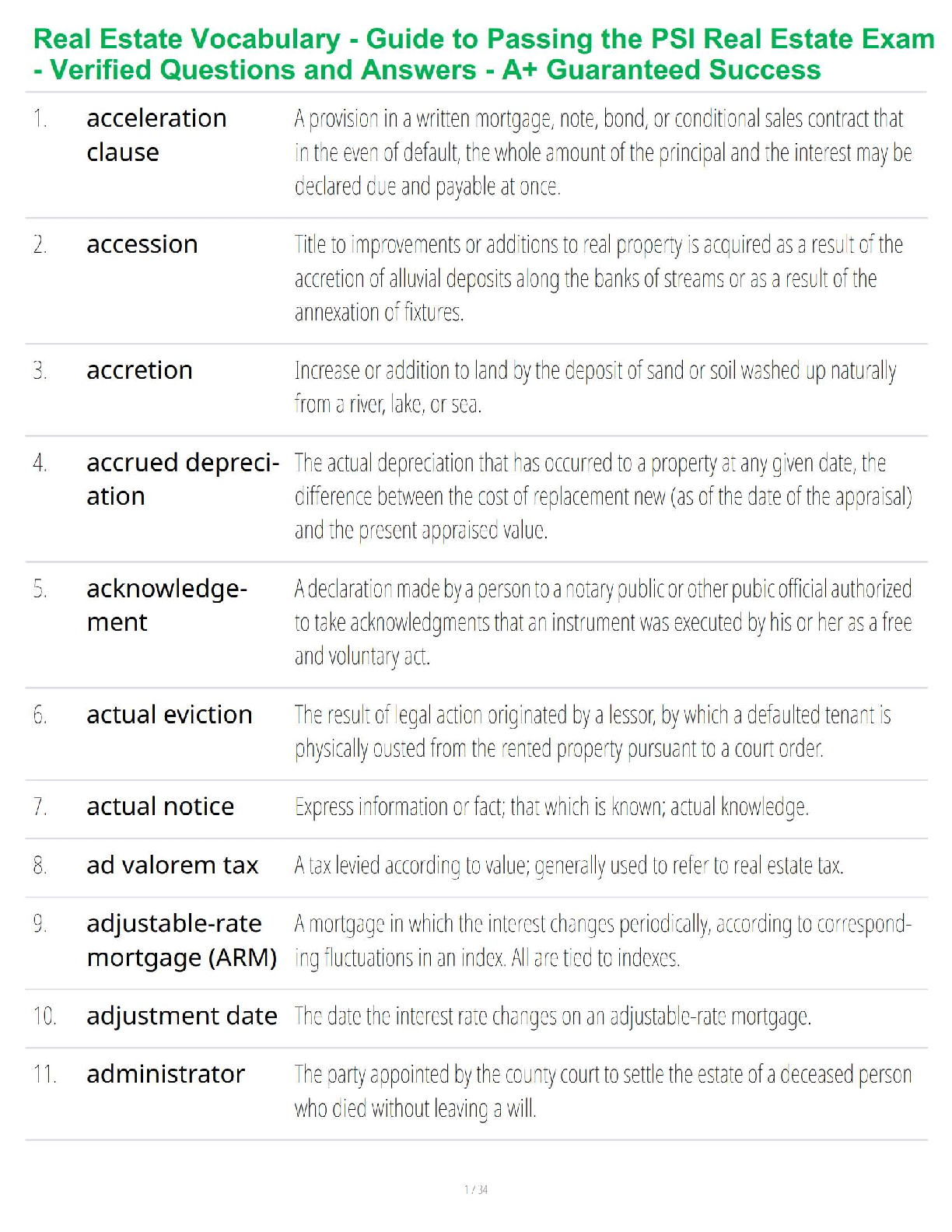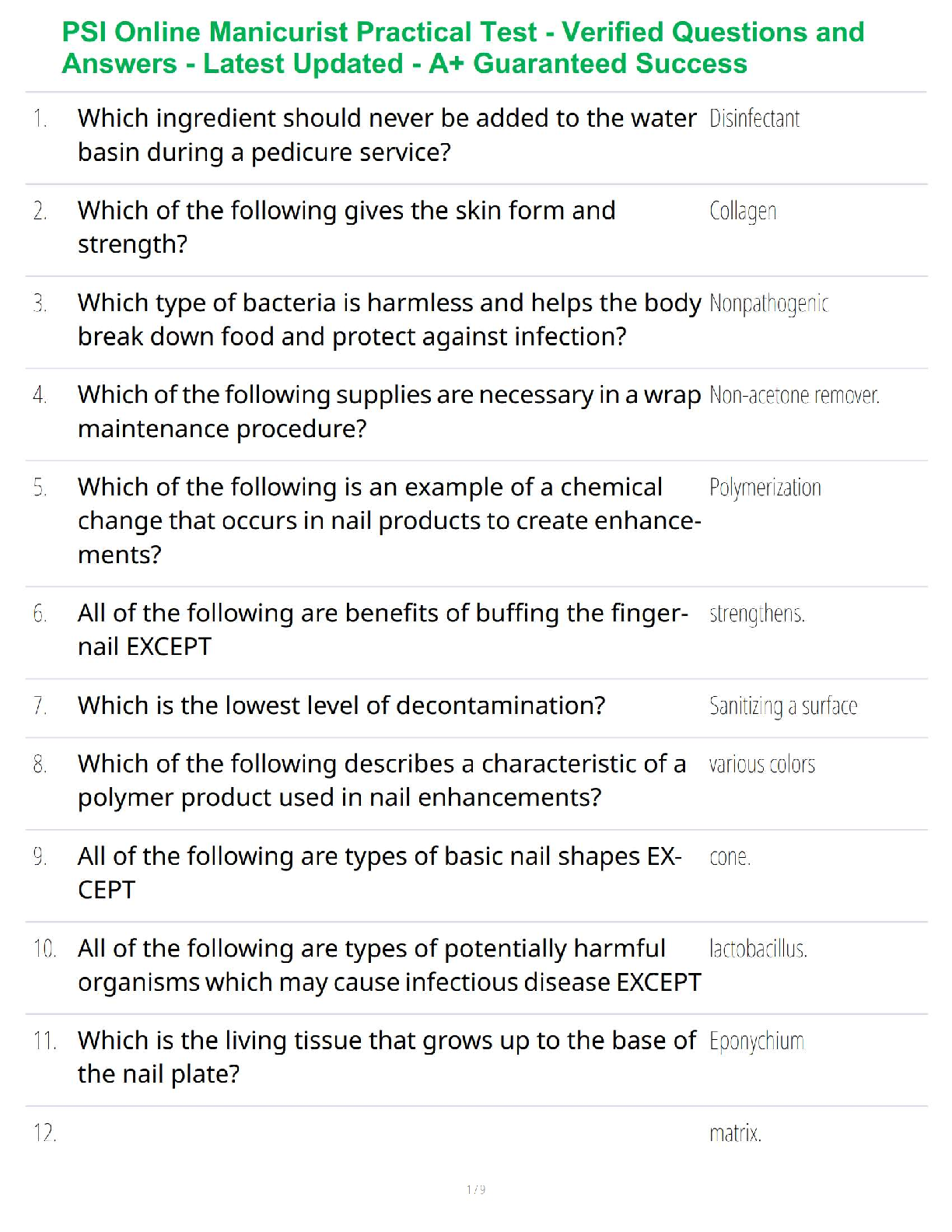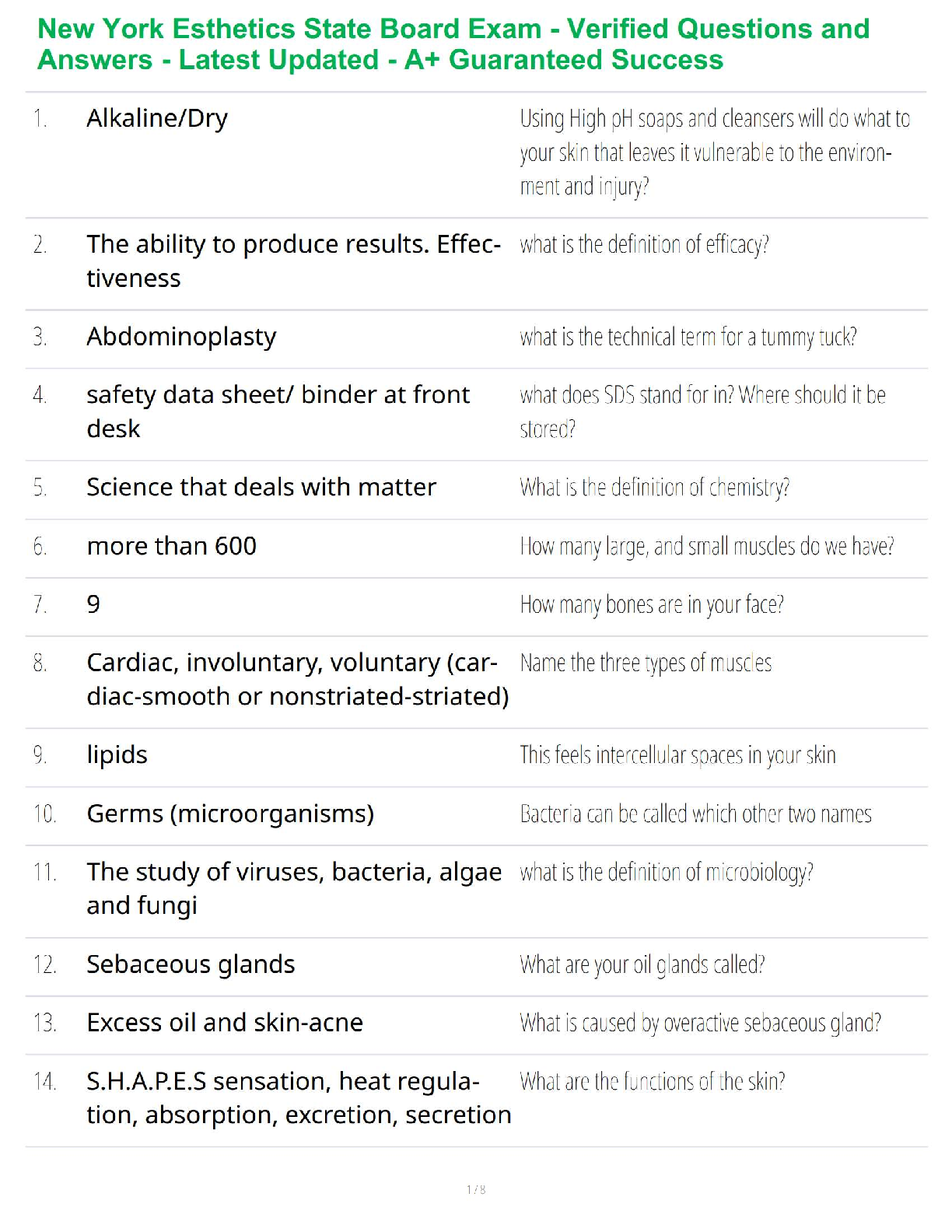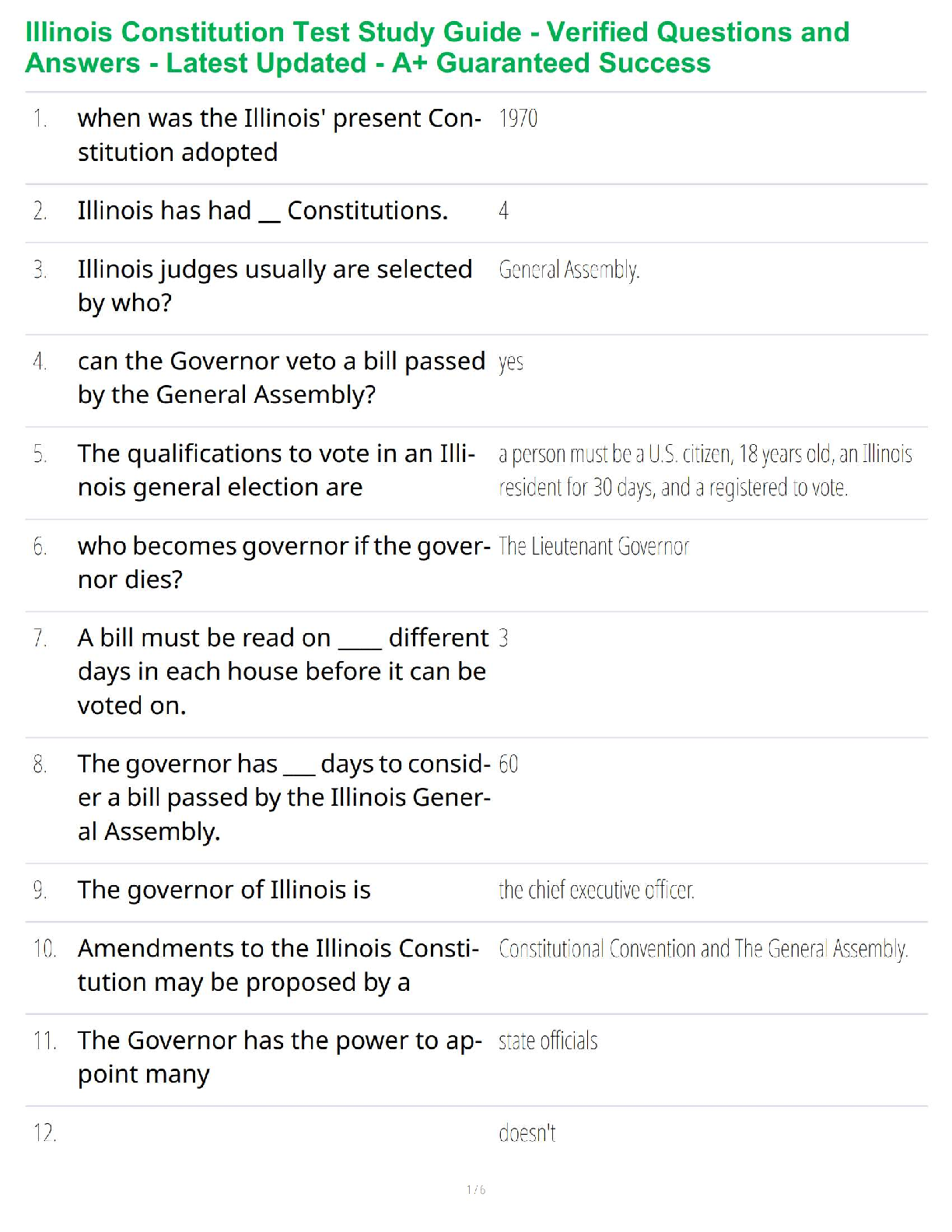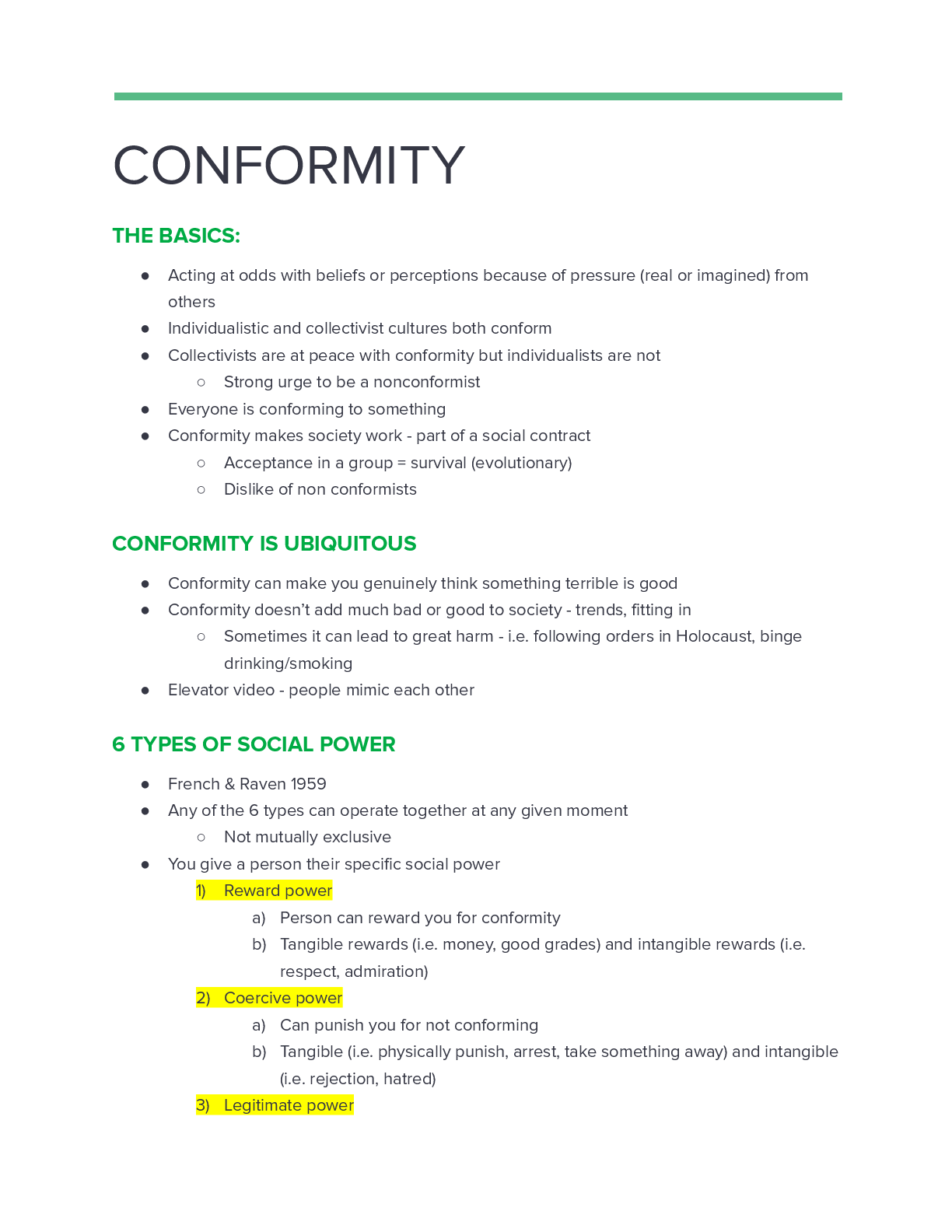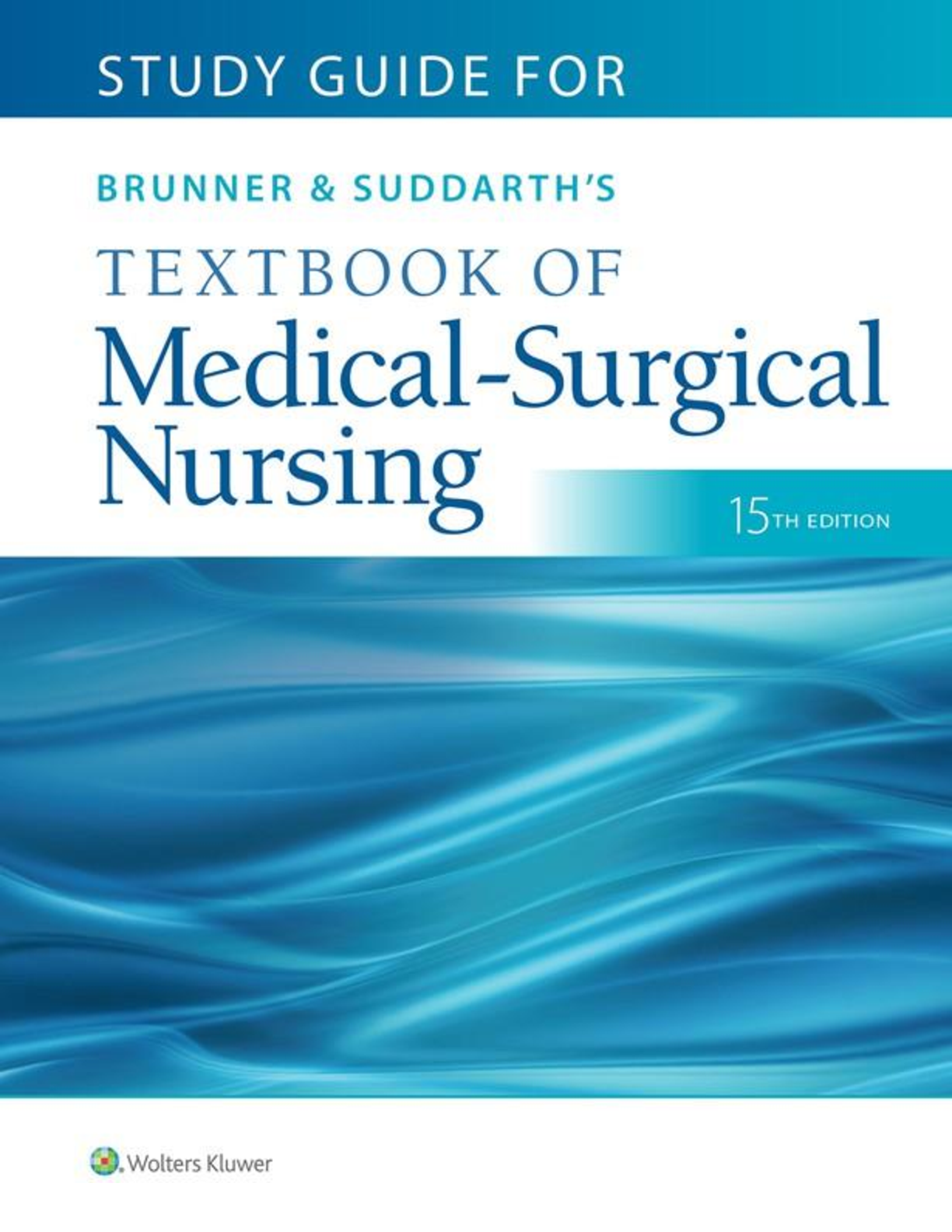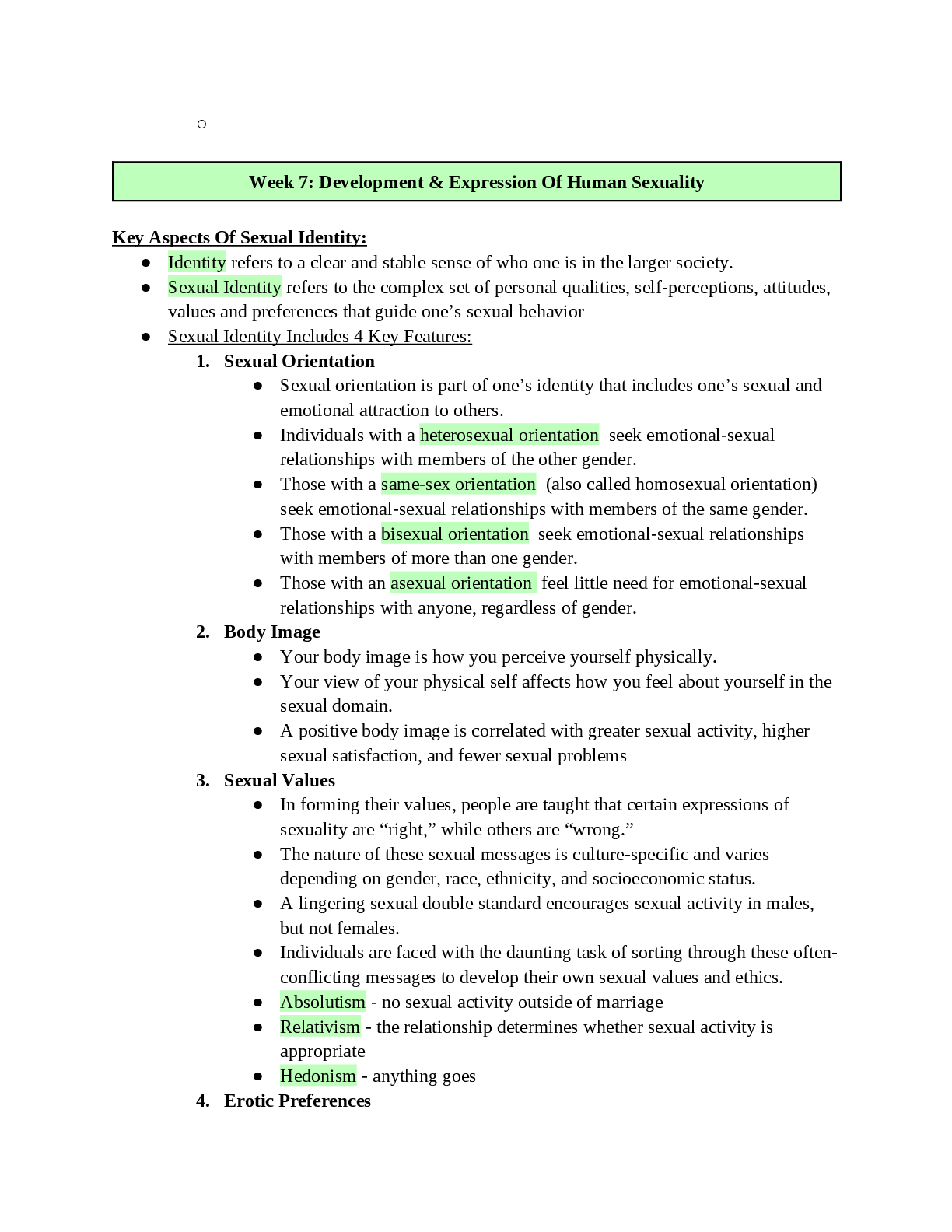PSYC 290N Week 6 Middle Adulthood – Quiz
Question 1
2 / 2 pts
(TCOs 10 and 11) Which of the following is a reason why it takes middle-aged adults longer to perform cognitive tasks than younger adults?
It is mo
...
PSYC 290N Week 6 Middle Adulthood – Quiz
Question 1
2 / 2 pts
(TCOs 10 and 11) Which of the following is a reason why it takes middle-aged adults longer to perform cognitive tasks than younger adults?
It is more difficult for the middle-aged brain to activate large areas of the cortex.
A larger area of the cortex is activated; therefore, it takes longer to process information.
It is because of decreased blood supply to the brain resulting from the build-up of plaque.
It is because the middle-aged brain does not react to perceptual stimuli as fast as the young adult brain.
Chapter 15, page 391
Question 2
2 / 2 pts
(TCOs 10 and 11) Gilda is 35 years old. Her estrogen levels have decreased, her menstrual periods have become very irregular, and she experiences periods of extreme sweating. What's happening with Gilda?
She is in the premenopausal phase of menopause.
She is in the postmenopausal phase of menopause.
She is in the perimenopausal phase of menopause.
Gilda is too young to be experiencing menopause so she should see her doctor.
Chapter 15, page 393
Question 3
2 / 2 pts
(TCOs 10 and 11) Which of the following is a factor that is likely to lead to clinical depression during and after menopause?
The number of life stressors present both before and during menopause
Whether or not a woman had regular menstrual cycles before menopause
Absence of depression before menopause
Fewer physical symptoms of menopause
Chapter 15, page 395
Question 4
2 / 2 pts
(TCOs 10 and 11) Which of the following is a dietary factor that contributes to the risk of osteoporosis?
Excessive calcium intake in adolescence and young adulthood
Excessive meat consumption
Excessive sugar consumption
Excessive caffeine consumption
Chapter 15, page 396
Question 5
2 / 2 pts
(TCOs 10 and 11) What is the most common mechanism that causes heart disease?
Decreasing oxygen supply to the heart due to the buildup of plaque on artery walls
Decreasing oxygen supply to the heart due to the rupture of an artery
Increasing pressure on the heart because of untreated high blood pressure
Shock to the heart caused by high levels of cortisol
Chapter 15, page 398
Question 6
2 / 2 pts
(TCOs 10 and 11) Which characteristic of Type A personality is most closely linked to CVD?
Time urgency
Competitiveness
Personal aggressiveness
Hostility
Chapter 15, page 400
Question 7
2 / 2 pts
(TCOs 10 and 11) Why do women fare better after a heart attack than men?
Men's hearts are larger and therefore suffer more damage from a heart attack.
Women are more likely to have other chronic diseases so this removes the risk of a fatal heart attack.
Men are more likely to smoke than women.
Women's heart muscle seems to be better able to adapt to stressors and physical exertion.
Chapter 15, page 401
Question 8
2 / 2 pts
(TCOs 10 and 11) Which of the following groups are most likely to die of heart disease?
White Americans, Native Americans, and Mexican Americans
African Americans, Native Americans, and Mexican Americans
African Americans, Native Americans, and Asian Americans
African Americans, Japanese Americans, and Mexican Americans
Chapter 15, page 402
Question 9
2 / 2 pts
(TCOs 10 and 11) What is the name of the drug that can help recovering alcoholics deal with withdrawal symptoms?
Antabuse
Methyltrexate
Acamprosate
Acetaminophen
Chapter 15, page 404
Question 10
2 / 2 pts
(TCOs 10 and 11) Overall physical health and cognitive performance in middle adulthood are most closely linked to
a family history and genetic predisposition.
a low-fat, high-fiber diet.
an optimistic attitude.
physical exercise.
Chapter 15, page 405
Question 11
2 / 2 pts
(TCOs 10 and 11) According to Erikson, which of the following would cause a person to experience a midlife crisis?
A sense of generativity
An external locus of control
A loss of self-efficacy
A sense of stagnation
Chapter 16, page 414
Question 12
2 / 2 pts
(TCOs 10 and 11) When a couple has learned which strategies work best when resolving disagreements and therefore have a sense that they have control of the relationship, they have accomplished which of the following?
Marital stability
Relationship confidence
Marital satisfaction
Marital self-efficacy
Chapter 16, page 417
Question 13
2 / 2 pts
(TCOs 10 and 11) The Fowler family lives in a duplex. Grandma Fowler lives in one half and Mr. and Mrs. Fowler and their children live in the other half. Every day when the children get off of the school bus, grandma meets them and prepares their afternoon snacks. She helps them with their homework until their parents get home from work. What kind of relationship does Grandma Fowler have with her grandchildren?
Companionate
Parental
Remote
Involved
Chapter 16, page 420
Question 14
2 / 2 pts
(TCOs 10 and 11) According to research on grandparent-grandchildren relationships, what is the most common explanation for a remote relationship between grandparents and their grandchildren?
Absence of emotional bonds or affectional ties
Disinterest on the part of either or both parties
Interference by parents
Physical distance
Chapter 16, page 420
Question 15
2 / 2 pts
(TCOs 10 and 11) Which of the following statements about the role of grandparents is correct?
Grandfathers and grandmothers have equally broad and intimate roles with their grandchildren.
Grandfathers have a broader and more intimate role with their grandchildren than grandmothers do.
Grandmothers have a broader and more intimate role with their grandchildren than grandfathers do.
Grandparents typically do not have broad or intimate roles with their grandchildren.
Chapter 16, page 421
Question 16
2 / 2 pts
(TCOs 10 and 11) Which of the following best describes best-friend relationships in midlife?
The level of intimacy increases as the frequency of interaction declines.
The frequency of interaction decreases but the level of intimacy remains stable.
The number of friendships stays the same but the level of intimacy declines.
Both the frequency and level of intimacy decline over time.
Chapter 16, page 407
Question 17
2 / 2 pts
(TCOs 10 and 11) What is the term for the trait characterized by the ease with which a person gets along with others?
Openness
Neuroticism
Conscientiousness
Agreeableness
Chapter 16, page 422
Question 18
2 / 2 pts
(TCOs 10 and 11) Micah, age 55, used to write great op-ed pieces for his newspaper. Now he chooses the topic and lays out the main theme, but he assigns the actual copywriting to a younger staff reporter. He then proofs the work, makes a few changes, and lets it go to print under his byline. Baltes and Baltes would suggest that Micah is using which strategy?
Optimization
Selection
Oversight
Compensation
Chapter 16, page 424
Question 19
2 / 2 pts
(TCOs 10 and 11) Lauren used to work as a telephone operator. Recently, the phone company for which she worked decided to go to an automated system. Lauren was laid off, making her what your text would call
an employment liability.
an involuntary career changer.
a volunteer career shifter.
a career transitioner.
Chapter 16, page 425
Question 20
2 / 2 pts
(TCOs 10 and 11) When I retire, I plan to continue teaching one class per semester and spend the rest of my time doing whatever I please. Dychtwald would classify me as which type of retiree?
Anxious idealist
Stretched and stressed
Leisure lifer
Wealth builder
Question 21
(TCOs 10 and 11) List and give an example of each of the three types of grandparent relationships discussed in your text.
[Show More]



